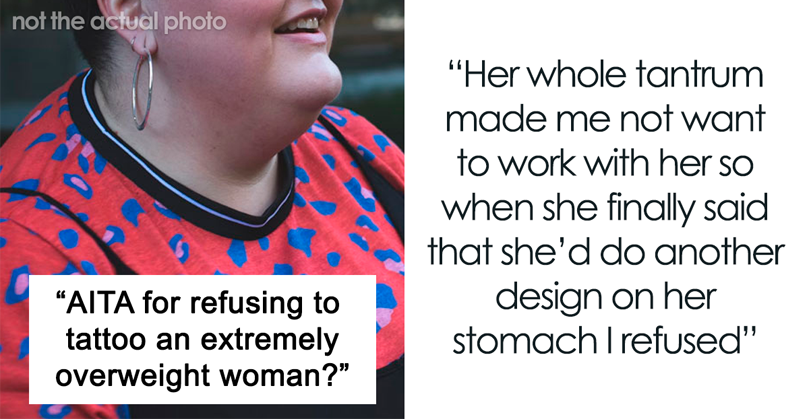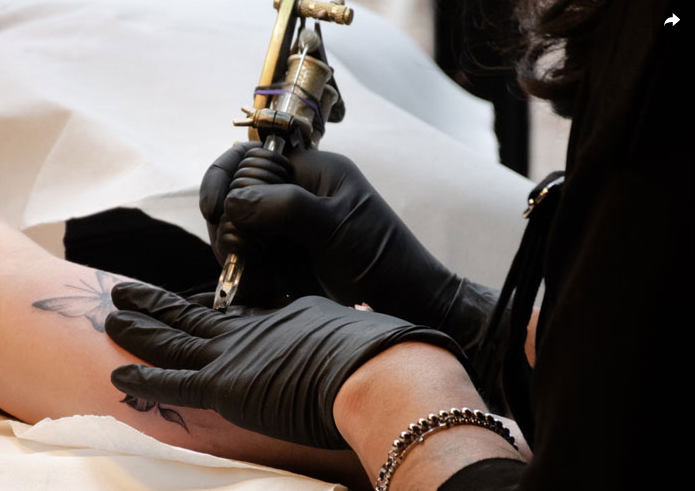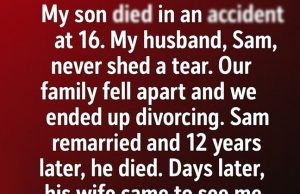
More and more people are getting tattoos. According to Gitnux, a whopping 225 million people worldwide have at least one tattoo.
However, sometimes tattoo artists face difficult decisions when clients’ body types present challenges to their designs.
Recently, a tattoo artist took to Reddit to seek guidance from the internet community after a confrontation with a plus-sized client.
Initially agreeing on a design for a geometric/jewelry tattoo on the client’s stomach/underboob area, the artist ended up having some unforeseen obstacles.
Describing the client’s torso as “a series of folds,” the artist quickly realized the proposed design might not translate well onto her client’s body.
“Her entire torso was just a series of folds especially around her ribs and the middle of her stomach where the tattoo would be placed, not only that but under her various folds there had definitely not been cleaned in a while (the smell was something else),” the Redditor wrote.

Attempting to handle the situation delicately, the artist explained the limitations and suggested alternative placements or designs better suited to the client’s physique.
“I had already drawn up the tattoo but upon looking at her torso I decided it simply wouldn’t be possible, the tattoo would either have to go into her (dirty smelly) folds or skip over those areas, which means if she lost weight that there would be huge gaps in the tattoo,” the Redditor explained.
She continued: “So I simply told her that I could not do the tattoo, she asked why and I tried to explain to her as kindly as possible that because of her folds on her stomach that I would not be able to do a nice tattoo in that style but that we could go for a different placement or do something more organic for that area…”
However, the client reacted strongly, accusing the artist of fat-phobia. The artist then declined to proceed with the tattoo, saying that it was the client’s behavior that ultimately influenced her decision.

The artist questioned whether their response was appropriate, particularly in refusing to work with the client following the outburst.















